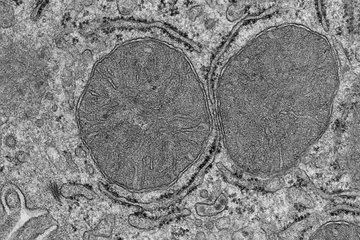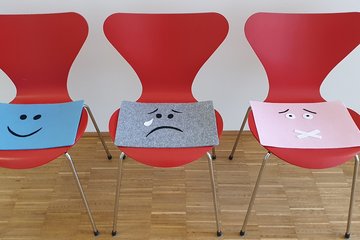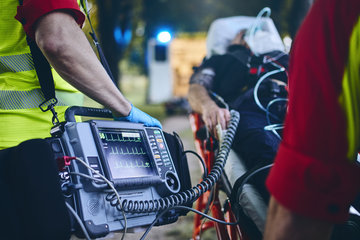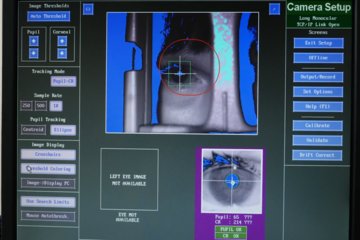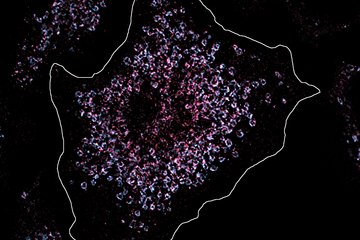BiondVax signs exclusive license agreement
Novel anti-IL-17 antibody for treatment of autoimmune and inflammatory diseases
BiondVax Pharmaceuticals has signed an exclusive worldwide license agreement to develop and commercialize VHH antibodies (NanoAbs) targeting Interleukin-17 (IL-17) as treatments for all potential indications, starting with psoriasis and psoriatic arthritis. The technology is originally based on research results of the Max Planck Institute of Multidisciplinary Sciences and has since been further developed in a broad-based collaboration with the Max Planck Society and the University Medical Center Gottingen.
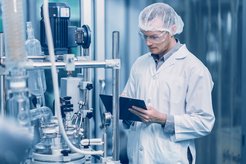
Psoriasis is a chronic autoimmune disease that causes inflammation and scaling of the skin. The National Psoriasis Foundation notes that the disease affects more than 7.5 million adults in the U.S. and an estimated 125 million people worldwide. The most common form of psoriasis, representing 80 to 90 percent of cases, is plaque psoriasis. Current plaque psoriasis treatments include topical steroid creams, phototherapy, oral drugs and several injectable biologicals. According to industry sources, the current biologics treatment market for psoriasis is over $9 billion per year and the anti-17 antibody market is growing at nine percent CAGR.
Of the biological treatments, monoclonal antibodies (mAbs) targeting IL-17A were the first mAbs to be approved for treatment of plaque psoriasis. The latest and most effective mAbs for the treatment of plaque psoriasis that are currently marketed, as well as those that, to BiondVax’s knowledge, are under clinical development by other companies, target not only IL-17A but also IL-17F and IL-17A/F complex.
It has been demonstrated in clinical trials that targeting both IL 17A and IL-17F generates superior clinical efficacy in treatment of plaque psoriasis, as IL 17F is the most abundant IL-17 isoform in the psoriatic lesions. Currently available mAb therapies for psoriasis require inconvenient systemic injection every four to eight weeks, are approved only for treatment of moderate to severe plaque psoriasis (representing only 25% of plaque psoriasis patients), and are associated with adverse side effects including exacerbation of IBD.
Bio-Better NanoAbs
In contrast to mAb therapies, the single-monomer NanoAb licensed by BiondVax may be effective even at extremely low concentrations, against all three key isoforms of IL-17. This potential multi target effect by a single NanoAb creates an opportunity for a significantly more effective therapeutic, at lower doses and with fewer side effects, for a broader range of disease conditions in addition to plaque psoriasis such as psoriatic arthritis and hidradenitis suppurativa. BiondVax’s NanoAbs, which are approximately one tenth the size of a standard mAb, are expected to have better tissue penetration thanks to their small size, and have demonstrated in lab experiments superior thermostability, which could translate to superior shelf life, easier transportation, and more convenient routes of administration.
NanoAb candidates must satisfy rigorous criteria relating to binding affinity, neutralization of the target and other attributes prior to being in-licensed by BiondVax. An in vitro proof-of-concept for psoriasis using the anti-IL-17 NanoAb in a psoriatic human skin model is expected later this year. BiondVax plans to initiate a preclinical in vivo efficacy study in 2024 followed later by human clinical trials.
As a target indication, BiondVax plans to test the antibody in humans with local, intradermal injections directly to psoriatic lesions to test the NanoAb’s ability to provide a safe and affordable biologic treatment for mild to moderate psoriatic patients for whom the available mAbs are not authorized, and who represent 85 percent of plaque psoriasis cases. BiondVax is working on plans to develop the drug also as a subcutaneous injection for systemic treatment targeting patients with moderate to severe plaque psoriasis.
Innovative NanoAb Platform and Collaboration
BiondVax’s NanoAb platform targets treatments of diseases with large unmet medical needs and attractive commercial opportunities, such as Covid-19, psoriasis, psoriatic arthritis, asthma and macular degeneration. NanoAbs exhibit several advantages over conventional antibody treatments, including improved stability, increased potency and the potential for safer and more convenient routes of administration.
The NanoAbs are being developed as part of a broad collaboration with the world-leading research institutes Max Planck Institute of Multidisciplinary Sciences and the University Medical Center Göttingen. Recent positive preclinical in vivo data indicates BiondVax’s innovative inhaled anti SARS CoV 2 NanoAb virtually prevented COVID-19 illness when administered prophylactically to hamsters.
The results also demonstrated that when administered therapeutically, the inhaled NanoAb virtually eliminated the virus in lungs and led to a significantly shorter and milder illness. BiondVax’s NanoAb platform has the potential to address a wide range of unmet medical needs, and the company is committed to developing innovative therapies that improve the lives of patients.
“The license of the IL-17 NanoAb from the Max Planck Society is not only an exciting opportunity to develop a unique treatment for psoriasis and other autoimmune diseases, but another validation of the productivity of our collaboration with MPG and UMG and portends additional significant developments to follow,” said Mr. Amir Reichman, BiondVax’s CEO. “Psoriasis affects millions of people worldwide, and we believe our NanoAbs have the potential to provide a much-needed and vastly improved treatment option.” “Our recent experience with tech-transfer, in-house process development, scale-up and manufacturing of the COVID NanoAb, leading to a highly successful preclinical study, attests to the strong potential of this unique collaboration to develop bio-better NanoAbs addressing underserved medical needs for millions of patients,” Reichman continued.
“We are very pleased that the next VHH antibody candidates out of a larger group pursued by the collaborators have successfully been generated, discovered and characterized by the Max Planck Institute of Multidisciplinary Sciences. BiondVax is well positioned to move this closer to and into clinical application,” commented Dieter Link, patent & licensing manager at Max Planck Innovation, the technology transfer organization of the Max Planck Society.





